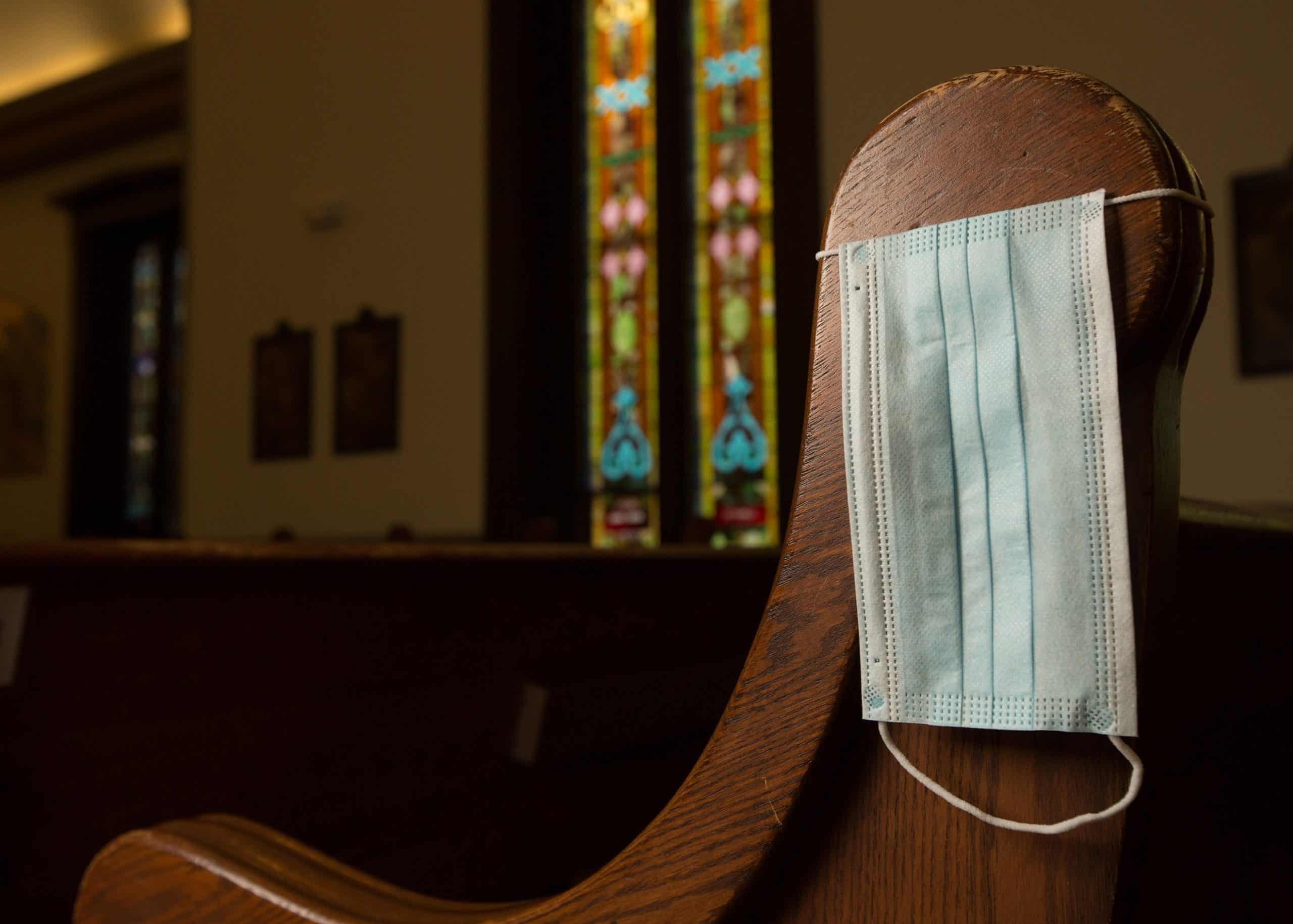I enjoy cycling for exercise and relaxation. A couple of weeks ago, I skipped my bike ride because I couldn’t find my helmet; I won’t risk riding without one. I wear a helmet to protect myself when I am biking. In contrast, I wear a mask to protect others when I am in public.
A face mask is nothing more than a small barrier against airborne droplets, which can contain and transfer a virus from one individual to another. Today, a mask is the best-known barrier against the Coronavirus known as COVID-19, which at last count has killed more than 190,000 of the nearly 6.5 million people infected in the US alone.
During this pandemic, wearing a face mask is a civil obligation and a Christian vocation: we are all called to protect one another. As created beings and Christian Catholics, this is a fundamental duty.
After more than seven months of dealing with this pandemic, I never thought that I would have to write about the importance of wearing a mask in public. Yet, I am. I did not foresee this pre-election political climate changing how much we care for each other. Yet, it seems to. I didn’t think that political ambitions could trump people’s health. Yet, they do.
After seeing what happened recently at the South Lawn of the White House, where a big group of people gathered without wearing masks, I asked myself “Have we forgotten our responsibility of caring for each other as a nation?” Could wearing a mask be an act of justice?
The justice of wearing a mask means being in the right relationships with each other. As it states in paragraph 1939 of the Catechism of the Catholic Church: “The principle of solidarity, also articulated in terms of ‘friendship’ or ‘social charity.’ Is a direct demand of human and Christian brotherhood.” Therefore, it is a moral obligation for Christian Catholics to wear a face mask in public as an act of social charity.
Recently, a TV newscast showed a group protesting against the restrictions geared to help curtail COVID-19’s spread. The signs read: “My body, my choice,” “Freedom is essential,” and even, humorously, “Jesus is my vaccine.” I could not help but think, “Really?” While there is a kernel of truth to each of these statements, the Catholic tradition easily refutes the argument behind each.
“My body, my choice.” Setting aside the obvious association of this slogan with pro-abortion activists, the sentiment reflects an exhaltation of the autonomous individual over the common good that is whole foreign to the Catholic tradition. I also think that upon serious reflection, those resistant to wearing masks might recognize that it stems not from a reasoned decision but stubborn selfishness born of frustration.
For example, recently, at the entrance to a store, I overheard a couple’s conversation: “Oh, I don’t have my mask,” one said. The other replied, “No one can tell me what to do. This is my life.” And they entered the store without facemasks. A James Baldwin quote came to mind: “There are so many ways of being despicable, it quite makes one’s head spin. But the way to be really despicable is to be contemptuous of other people’s pain.”
We all have an obligation to care for each other. This obligation is more important than any minor inconveniences of wearing a mask. As a responsible citizen, the best way I can protect myself is by protecting others. To quote the apostle Matthew: “Do to others whatever you would have them do to you” (Mt.7:12.)
“Freedom is essential.” More than ever, COVID-19 challenges one of our core American values: freedom. While some misinterpret freedom as individual autonomy, it actually means being held accountable to our existence. Freedom is a call for Ubuntu: states our responsibility toward each other as a community of love and Justice. Freedom is not a license to do whatever we want. We Catholics should proclaim more loudly our understanding of freedom as countercultural. As the catechism of the Catholic Church states in paragraph 1738: “Freedom is exercised in relations between human beings.” It continues: “The more one does what is good, the freer one becomes.” The act of wearing a mask is an act of communal well being.
“Jesus is my vaccine.” Certainly, I would never advocate moving away from Jesus, but Jesus does not free us from our obligations in community. Jesus gives us a responsibility, a moral obligation, to our community. Praying for the end of the pandemic is important, but it does not take the place of taking reasonable precautions. CDC Director Dr. Robert Redfield says, “Cloth face covering is one of the most powerful weapons we have to slow and stop the spread of the [COVID-19] virus. ” I believe Jesus would support that.
Wearing a mask in America might be difficult for some with health conditions and impossible for others due to their jobs. However, we can protect those people by wearing our own masks. As Christian Catholics, we answer God’s call to maintain the common good by playing our part with love and justice. Although we are members of a free society, we balance our individual freedoms with what is “right” and “just” for the community. It is just to stay home if possible, practice social distancing, and view wearing a mask as a “pro-life” duty.
COVID-19 social restrictions can feel oppressive, and many of us are frustrated, confused, and sad. However, we are strong citizens of the land of the free and true Christians living by hope. We can pray for God to grant us the grace of patience to wear a mask. This small sacrifice can lead us to freedom and keep us together.
A few days after I had to skip my bike ride, a good friend loaned me a helmet. That friend demonstrated his concern for my well-being by making sure my head is protected. Similarly, I show concern for the safety of others by wearing my mask.


